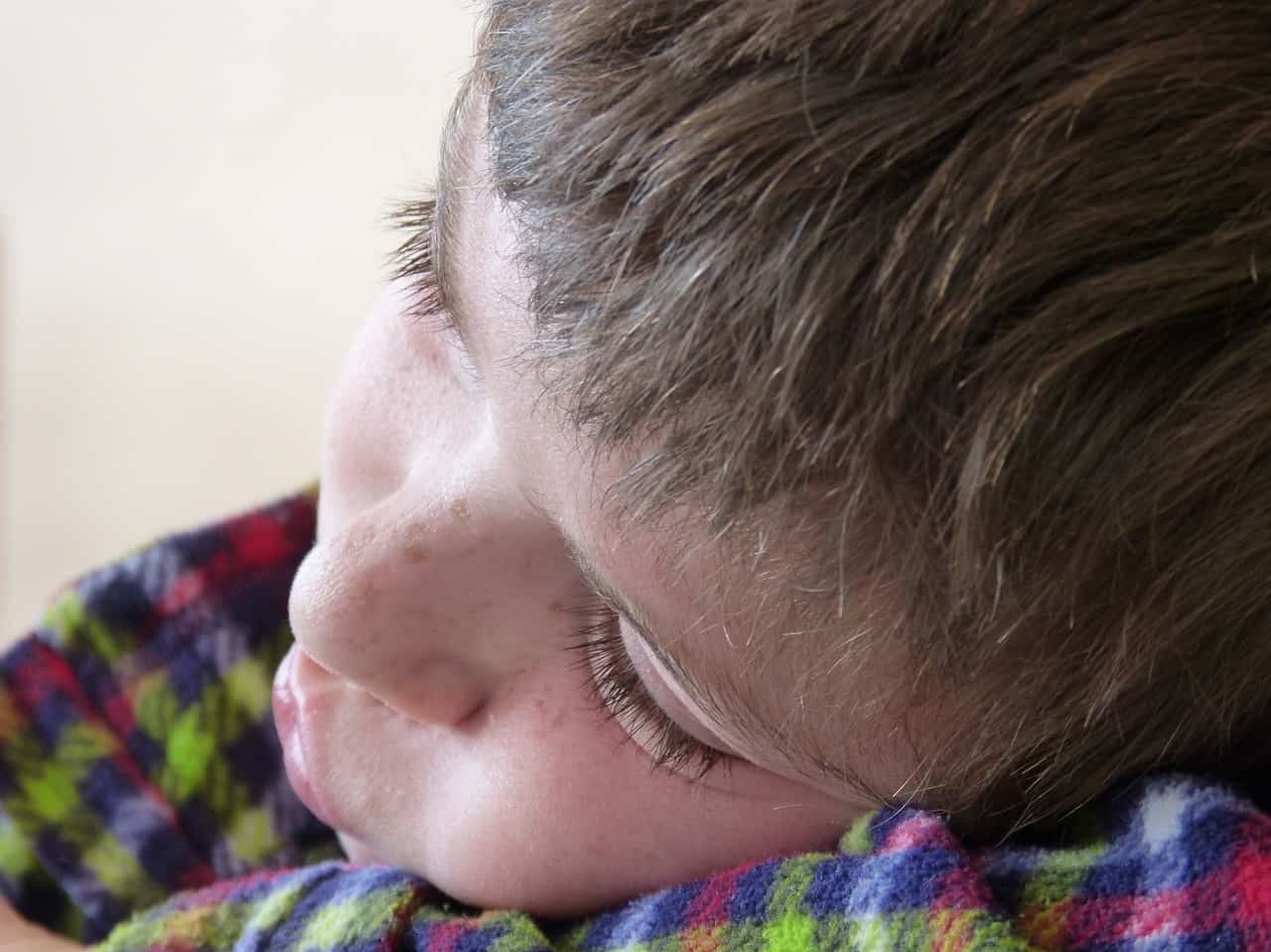8 Ways For Getting Your Kids on a School Sleep Schedule
School is coming soon, and a lot of parents are preparing for their children’s education. The back-to-school season usually means a lot of adjustment. There’s shopping for supplies, buying the right uniform, and arranging last-minute enrollment settlements.
But one thing parents often overlook is their kids’ sleep schedule. Sure, summer vacation means you and your kid have all the freedom to stay up late and wake up whenever you want. But school days don’t work like that.
Adjusting to a new school sleep schedule is challenging, especially for younger children. But you don’t have to deal with grouchy faces so early in the morning.
There are easy ways you can get your kids on a school sleep schedule. With a little bit of understanding, practice, and patient, your child can have enough energy to power through the day. Here is how you can get your kids on a school sleep schedule today.
How Much Sleep Do Growing Kids Need?
Before we talk about how to put your kids to sleep, let’s first talk about why. Why is the right amount of sleep so important for your child?
Depending on their age, kids all need sleep to grow strong and healthy. Adequate sleep helps your child be physically and mentally healthy, very necessary if they want to go through a full school day.
But how much sleep is enough for your tot? First, preschool children (3-5 years old) will need plenty of sleep for their growing bodies. They require around 10-13 hours of sleep every day.
School-age children (6-13 years old) require less sleep than preschoolers. But they still require a hefty 9-11 hours of rest per night.
Lastly, teenagers (14-17) need almost the same amount of sleep as adults do. (If not, a little more.) They need about 8-10 hours of sleep every night if they want to stay productive.
But good sleep is more than just having enough hours of rest per night. Your child’s daily habit, diet, stress-level, and environment can affect their sleep quality.
But what happens if your child does not get enough quality sleep?
The Effects of Not Getting Enough Sleep to Your Child
Insufficient sleep is more than just waking up feeling like you ran a marathon. When your child lacks sleep, they can experience both short and long-term negative effects.
A lot of people are familiar with the effects of not getting enough sleep. You feel tired and heavy when you get out of bed. And throughout the day, your focus goes down, and your fatigue goes up.
Children can experience the same feeling when they don’t get enough sleep. A lack of sleep impacts their daily activities, making them weaker, physically and mentally. They experience irritability, stress, forgetfulness, and lack of attention and motivation in the classroom.
Skipping one or two nights can cause some disruptions, but it won’t harm your kid right away. However, turning sleep deprivation into a habit can cause long-term damages to your child’s well-being.
Research shows that sleep deprivation can lead to severe problems in the future. Your child will have to worry about heart diseases, obesity, diabetes, and a weakened immune system. Inadequate sleep also leads to impaired brain function, such as being forgetful and easily losing focus.
A lack of sleep has also been linked to psychiatric disorders. Anxiety and depression are often linked to a lack of sleep and a disorganized sleep schedule.
These facts are unnerving, but the problem is that we still see a trend of children being sleep deprived today. A study in 2018 shows that 6 out of 10 middle schoolers and 7 out of 10 high schoolers don’t get enough sleep. And this number is slowly increasing yearly.
Plenty of factors come into play as to why kids can’t get enough sleep. Stress from school, side effects of certain disorders, and the Internet are just a handful of reasons.
Whatever the cause may be, the responsibility often falls on the parents. As parents, it’s your duty to make sure your child is well-rested and adjusted every day. And implementing a sleep schedule is the first step in the right direction.
Now that school is around the corner, it’s time to start fixing that sleep schedule before the big day. Here are some tips on what you can do so that junior sleeps soundly every night.
8 Tips on Getting Your Kids on a School Sleep Schedule
1 Start the Adjustment Period Slowly
Changing a bedtime routine in a flash will never work in your favor. Rather, you can gently adjust your child’s sleep pattern one hour at a time every day.
For example, if your child wakes up at 9 am, and you want them to be up at 6, wake them up an hour earlier for a few days. Once they get used to waking up at 8, you can continue the cycle until they feel comfortable waking up at 6 am.
Introducing new sleep and wake schedule is tricky but attainable. Just don’t forget to adjust the time to fit the required sleeping hours your child needs.
2 Put Away the Electronics at Night
We understand just how much fun your kid is having when playing on their phone or tablet. But it’s recommended that they hand those devices over at least 90 minutes before bedtime.
That’s because electronic devices emit blue light, which hinders the creation of the sleeping hormone melatonin. This can make sleeping harder and can ruin your child’s body clock. Besides, modern devices are filled with content that becomes too hard to put down.
But rest is more important than a new YouTube video or an addictive mobile game. So devices should be off-limits for the rest of the night for you and your child.
3 Create a Bedtime Routine and Follow it Every Day
A routine can help the body adjust to the right sleeping time. So if you want to tuck your tot early, a nightly routine can do the trick.
A warm bath, a toothbrushing session, and a bedtime story or chit-chat are some things you can do to implement a good night routine. Practicing this schedule, even on the weekends, can improve your child’s sleep drive. Pretty soon, they’ll fall fast asleep right on the dot.
4 Lighten Up the Dinner Plate
Dinner is a good time to replenish any lost calories from a busy day. But it’s not a good idea to fill your kid’s plate up. Too much food before sleeping can make resting harder than it needs to.
There are many cons when it comes to eating plenty at night. For kids, it can cause digestion problems, like indigestion, heartburn, and acid reflux. Eating too much can also lead to your kid having a slower metabolism, thus gaining some extra pounds.
Eating less sounds unsatisfying, but it can make sleep feel more peaceful. Besides, that means more space for breakfast and lunch on the next day!
5 Get Enough Exercise (But Not Before Bedtime)
Exercise is always good for a growing kid’s body. It can also make them feel more tired and more likely to look for their beds at night.
Keep your kid moving so they can feel more relaxed when night comes. Just be careful not to work them out before sleeping. Otherwise, the adrenaline rush won’t let them get any shut-eyes.
6 Give Your Child a Soothing Environment
Imagine trying to sleep in a noisy environment, with the lights on, and it’s scorchingly hot. You wouldn’t want to sleep in that room, and neither would your child.
If you want your kid to be sleeping like a baby, you have to match that tranquility with the environment. Remove any noise-causing gadgets and cover up any distracting lights. You also want to make sure the room is neither too hot nor too cold.
Feeling comfortable is the key to a good night’s sleep. This can drastically raise the quality of sleep that we have been talking about earlier.
7 Let Some Sunlight in the Morning
Your child has finally gone through the night peacefully. Now how do you wake them up effectively? You can stir them awake by putting natural light into their bedroom.
Sunlight is a gentle way to wake up the body after being in the dark for a long time. A 15-30 minute exposure to the sun can wake your kid’s body up and reset their biological clock for the day. And if we have to be honest, sunlight sounds less annoying than having an alarm clock blaring at you.
You can bring in sunlight every morning by opening the curtains or blinds in your child’s bedroom. If their room doesn’t have any windows, then a sun lamp can do the trick.
8 Repeat the Cycle (Even on Holidays)
You have successfully established a sleep pattern for your child. Now it’s all about repeating that pattern every day. And yes, that also includes the holidays.
It’s tempting to break the cycle when there are no classes. But a shift in the sleep pattern can disrupt your child’s body clock and sleep drive. It can make sleeping in the school days harder to follow again.
As fun as it is to binge-watch a new show or play video games until the break of dawn, sleep is still a priority. Don’t let your child break the cycle, or it’s back to square one again.
What Can Parents Do if Children are Struggling with School and Sleep
One major problem children face when it comes to getting quality sleep is their school load. Often, you hear kids complain about school giving homework that makes sleep impossible. And for a lot of kids, it’s very true.
Homework has gotten significantly more taxing. Right now, kids need to use computers and mobile gadgets to finish them. So not only are they beating deadlines, but they are also exposed to more harmful blue light.
After-school work is expected from most schools, and it’s hard for parents to do anything about them. But you can make it easier for your kids to handle the workload.
You can give your kids a helping hand if the load is too heavy. It can make work faster and more efficient if there are more heads than one. You can also hire a tutor who can guide your kid whenever they are stuck doing so much work.
If homework is becoming too loaded for your child, you can consider approaching their teacher for reconsideration. This is more of a final choice if your child is visibly struggling. Just make sure the conversation ends in an agreeable fashion where change will come in the future.
In today’s world, it’s hard to have a healthy sleep pattern. More children are forced to stay up late in the name of being productive. But you can do your part to make sleep more obtainable for your child.
Conclusion
Sleep is a vital part of any child’s growth and development. Children require more sleep than adults do because of their growing bodies. So as parents, it’s important to make sure your kid gets high-quality sleep every night.
School can come in the way, though. Because of this, parents need to find ways for their kids to adjust to their new school sleep schedule. Fortunately, this is possible with a little bit of encouragement and habit-making.
Finding the right sleep pattern takes time, and plenty of factors can affect your child. Their surroundings, conditions, and feelings all come into play when trying to put them to rest. And as parents, it’s your duty to make all of those things as favorable as possible.
Of course, things won’t always go to plan. School can come and disrupt your child’s sleep pattern. Homework is often the reason why a lot of youngsters have to stay up so late.
But you can do your part to ease the work. Finding time to help your child with their homework can make things easier and quicker. Plus, it’s also a good bonding activity.
At the end of the day, sleep is vital for any developing kid. It greatly impacts their physical and mental health. And with ample sleep, they too can bring home an A+ paper today.










